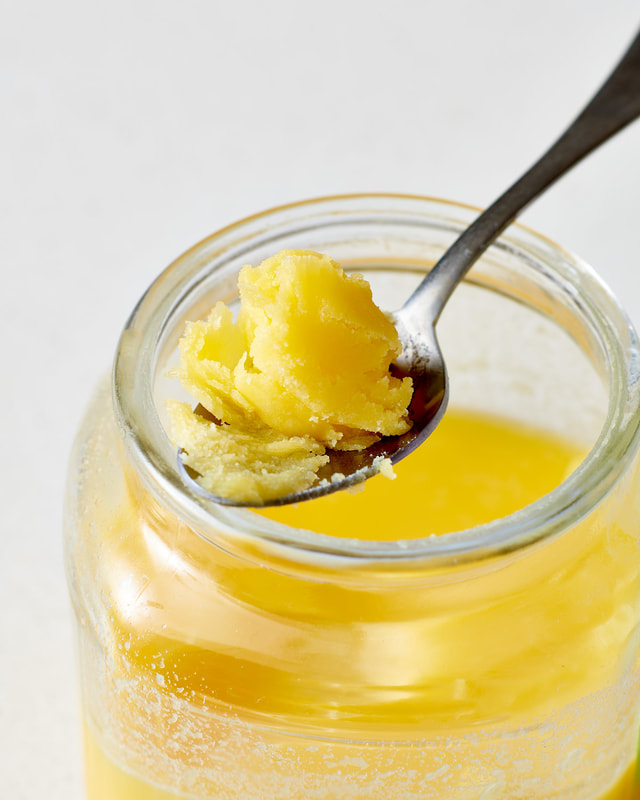Ghee / Clarified Butter
|
Making ghee is not difficult, however it does take some time. Bringing out the sweet, nutlike flavor of the melted butter requires long, slow cooking to fully evaporate the water and allow the milk solids to separate and float to the surface leaving clear, golden ghee.
Begin by heating the butter in a large heavy saucepan over a medium heat until it comes to a boil. When the surface of the butter is covered with white foam, reduce the heat to as low as possible and simmer uncovered. From time to time, remove the solids that accumulate on the surface. Make sure that the ghee does not burn. If the ghee is cooked over too high a heat, or for too long it will go very dark and give off a pungent odour. How much time you need depends on the volume. 1kg may take approximately 1/2 hour. The finished ghee should be a golden colour and clear enough to see through to the bottom of the saucepan. Remove any remaining solids on the surface, then carefully ladle the ghee into glass containers. Only take out the clear liquid, leaving any residual solid matter on the bottom. Allow it to cool uncovered at room temperature. Once cool seal and store in a cool, dry space. |
Why Use Ghee?
During the making of the ghee, the milk solids are removed. This includes the lactose and casein which are problematic for many people. Essentially all that is left is the fat component of the butter. Trace amounts of lactose and casein may remain, so for those with intolerances, it is a good option. However for those with severe allergies to dairy products, it is probably best avoided.
Ghee is a rich source of Vitamins A, C, D, K & E. It is also anti-inflammatory due to its butyrate content.
During the making of the ghee, the milk solids are removed. This includes the lactose and casein which are problematic for many people. Essentially all that is left is the fat component of the butter. Trace amounts of lactose and casein may remain, so for those with intolerances, it is a good option. However for those with severe allergies to dairy products, it is probably best avoided.
Ghee is a rich source of Vitamins A, C, D, K & E. It is also anti-inflammatory due to its butyrate content.

